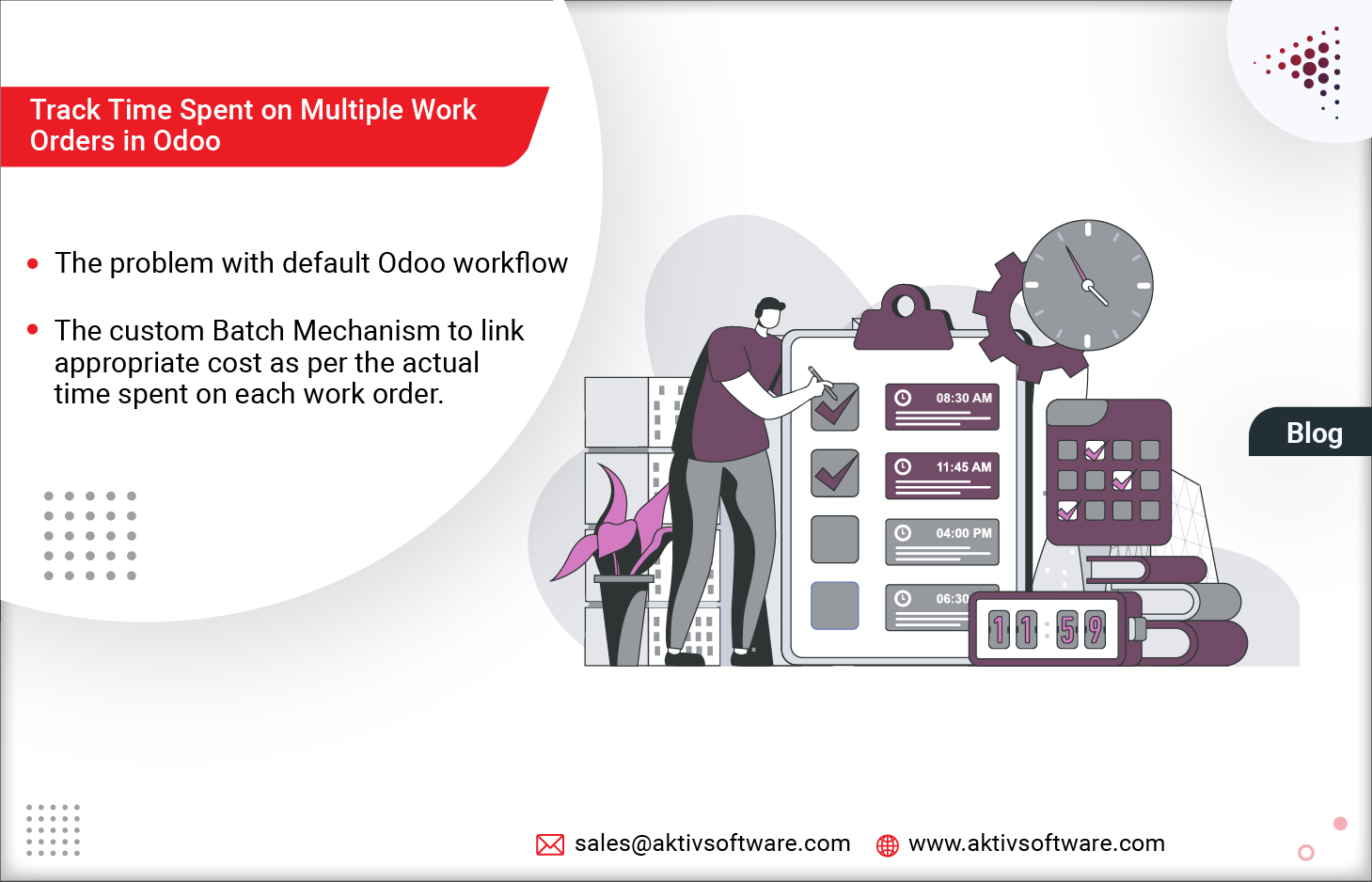Odoo Manufacturing lets you record time spent on multiple work orders through the “Start,” “Pause,” and “Done” action buttons.
Eventually, the total time recorded on each work order will reflect in the final Odoo MRP cost analysis report that will sync the information with payroll and invoice.
Use Case:
Joe has been assigned three work orders and decides to work on all three orders throughout his 9 hours shift.
So, he hits the start button for all three orders, and when he is done for the day, he will just hit pause for all three orders.
Now, logically this means Joe has divided his 9 productive hours across three tasks but what Odoo will understand is that Joe has spent 9 hours on each work order.
The correct calculation should be- 9 hours were spent across all three work orders.
But according to Odoo’s default workflow, the system will consider that Joe has spent 9 hrs per work order, which means a total of 27 hours is spent on all three work orders.
Problem Statement:
The default calculation of productive hours for multiple Work Orders in Odoo Manufacturing becomes a bottleneck for manufacturers trying to track actual hours to calculate costs for Manufacturing orders.
How to Track Accurate Labor Time Across Multiple Work Orders in Odoo Manufacturing?
We have developed a new workflow-Batch Mechanism, to calculate accurate, productive hours.
With this custom workflow, floor managers or users with appropriate rights could create a batch and add multiple work orders they will work on.
Users can use the standard “Start,” “Pause,” or “Done” buttons for the whole batch.
How does the Batch Mechanism calculate Work Order Time Tracking in Odoo?
Continuing the above use case:
Joe has a batch of three work orders as per the custom flow.
Joe signs in for the whole batch of work orders and pauses the same after his 9-hour shift.
The batch mechanism now will distribute Joe’s 9 productive hours equally among three work orders.
We have developed a Batch Mechanism formula that calculates accurate hours spent on Work Orders in Odoo Manufacturing:
The Batch Sign-Off time – The Batch Sign-On time/number of work orders in the batch
So, here’s how the batch mechanism formula track production hours for work orders:
Joe started working on his batch at 9:00 AM and paused the batch at 6:00 PM (total of 9 hours).
Based on the above formula, the productive hours Joe spent on each work order is 3 hours (9 productive hours/3 work orders).
As a result of the automated batch mechanism calculation, the appropriate costs can be linked to the project in accounts, and the user can also get paid for the actual time spent on each work order.
If you don’t want to split the total batch hours evenly for all manufacturing work orders, we can help you customize it accordingly.
We can add a wizard which pops up when the user hits the “pause” or “done” button asking them to enter actual hours spent on each work order.
The time entries made by users will then reflect accordingly in the final report.






